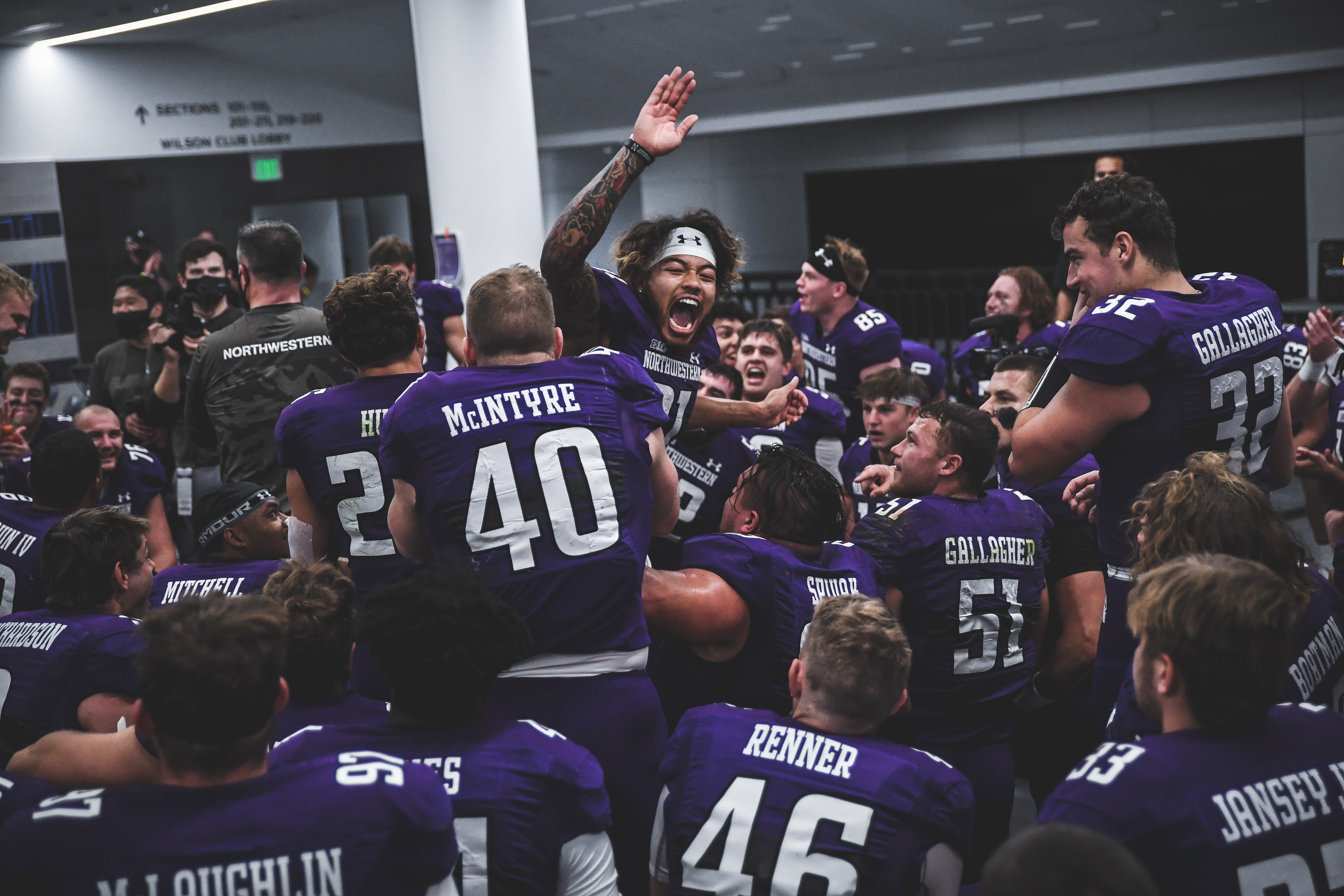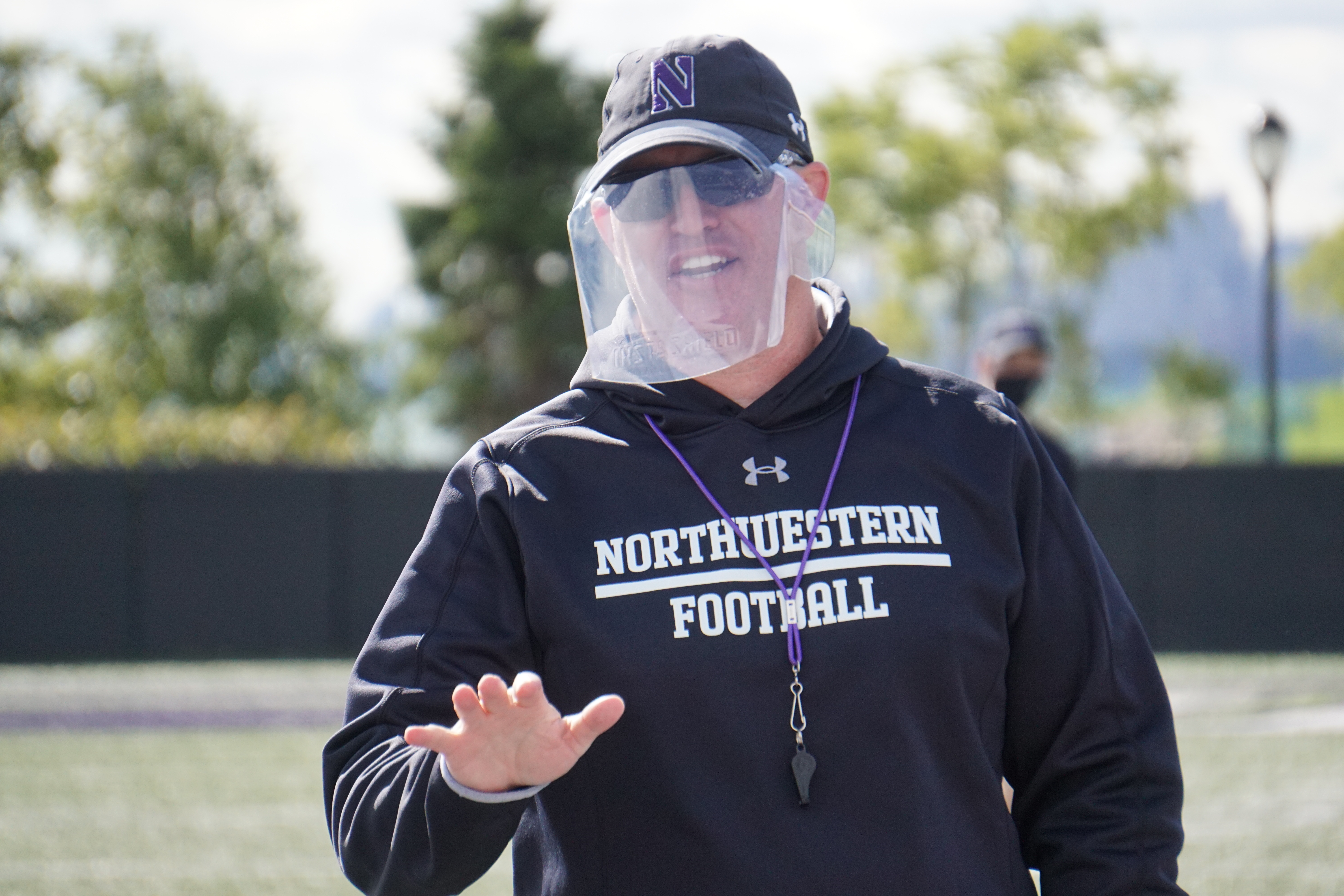
A cancelled season. An overturned decision. An abbreviated schedule. A controversial playoff. Similar to the rest of the country, Big Ten football has faced a tumultuous 2020, sparing no program from the complications of COVID-19. Yet Northwestern’s football program has remained the only team in the conference to report zero positive COVID-19 cases since daily testing began in late September. As the Big Ten Championship quickly approaches, Northwestern’s culture and commitment have earned them opportunities many fans may not have predicted and may give them an upper-hand heading into this weekend’s playoffs.
Before the snap:
There was a time when fans were unsure whether they’d get to see a Big Ten game this fall. The conference cancelled its plans for a season in August after determining conditions were not safe enough. Conference leaders reevaluated a month later and reversed their decision before announcing a condensed schedule for the conference to complete in time for college football playoffs: nine games in nine weeks.
It was ambitious, failing to leave any wiggle room for schools that might fall prey to COVID-19 cancellations. In addition, the Big Ten outlined very specific guidelines about when a school will be forced to cancel an upcoming game. It evaluated the positivity rates from each team, as well as positivity rates from each school’s overall population, to determine whether a school would be permitted to play. If a football team reported a 2-5% positivity rate or a school’s campus reported a 3.5-7.5% positivity rate, the team would be forced to temporarily halt practice and evaluate the feasibility of a game. As the season went on, these benchmarks would force the Big Ten to cancel 12 games.
Big Ten football is preparing to return — with no margin for error https://t.co/5E3RJx1vCk
— The Washington Post (@washingtonpost) September 19, 2020
Teams struggled with these protocols all season long. Outbreaks ranging from less than five to more than 50, have the potential to wreck entire lineups, freezing a program’s plans to compete and affecting the schedule of their opposing team. Every Big Ten program suffered outbreaks, except one: Northwestern.
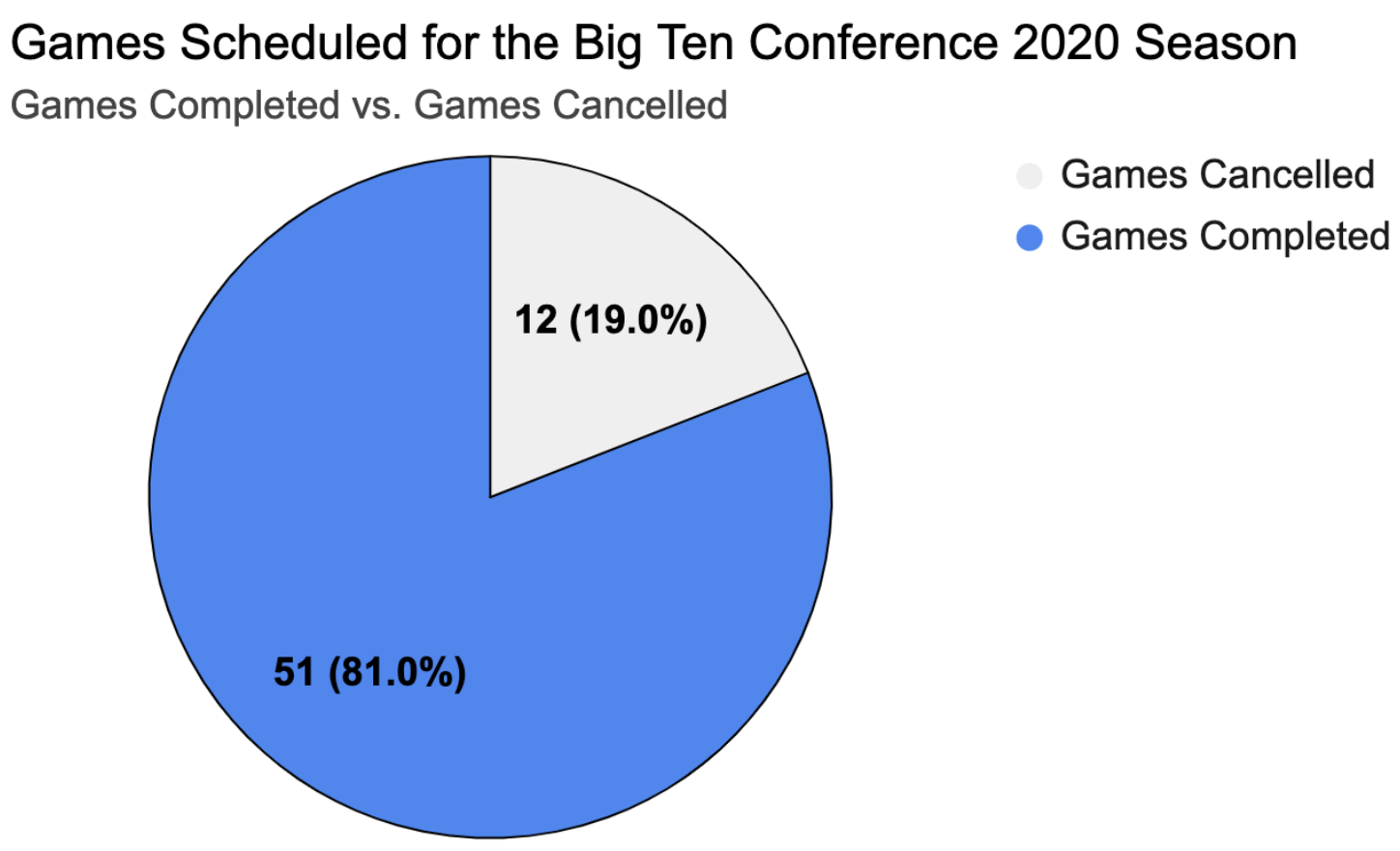
Northwestern vs. COVID-19
Northwestern’s football program has yet to cause a single cancellation during the 2020 season. After a couple positive cases at the beginning of summer workouts, the Wildcats established strict codes of conduct and a trusting culture that enabled the team to remain completely COVID-19 free.
“We came back, and they’ve made unbelievable choices,” coach Pat Fitzgerald said. “I’m really proud of our guys with the choices they’re making socially, and we’ll need to continue doing that if we want to make this one of those legendary type seasons.”
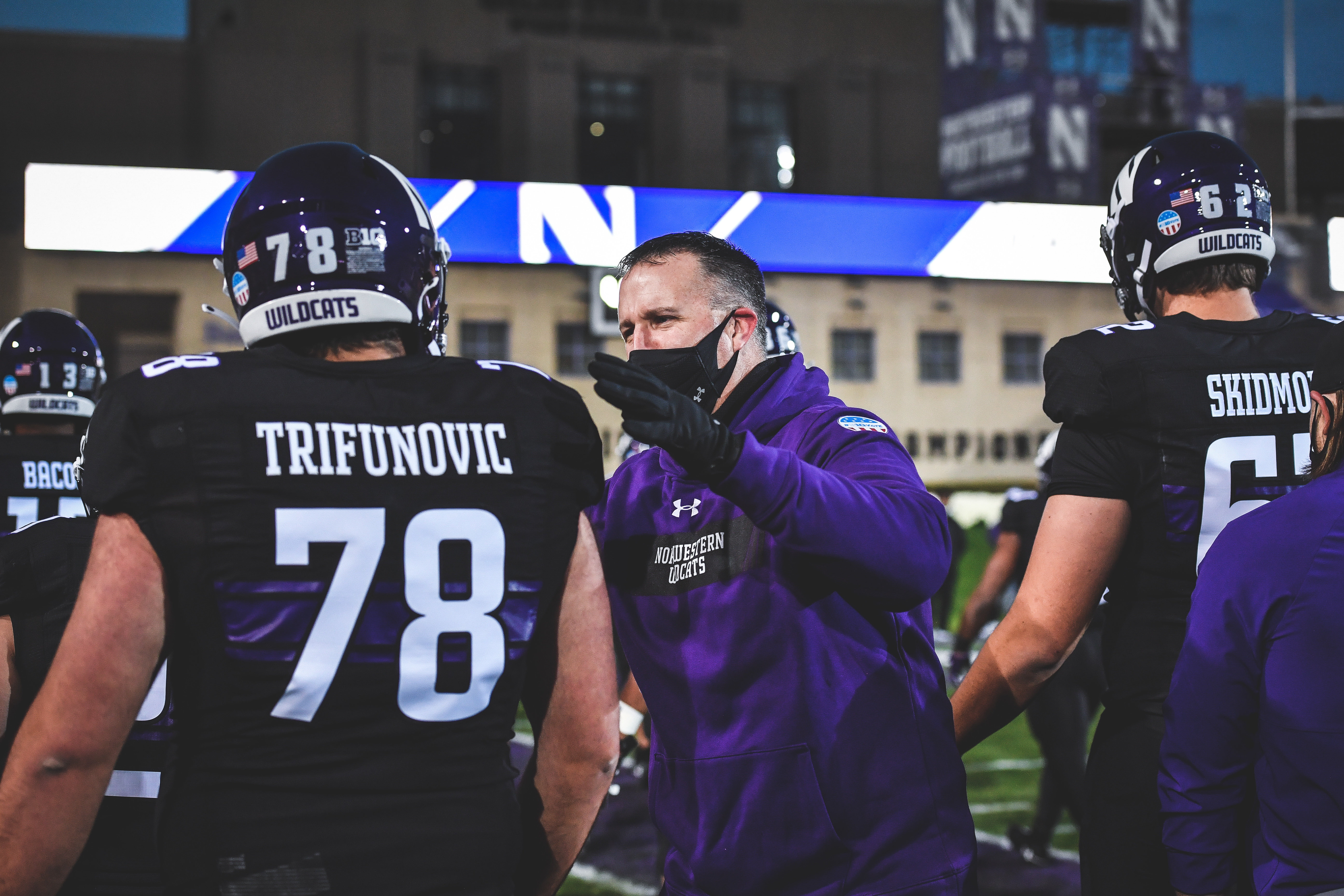
Watching coaches and players wear masks on the sidelines gives fans a glimpse at the adjustments athletes have been forced to make on the field. For Northwestern, however, their success comes from their behavior off the field and outside the locker room.
“Go to practice and go home. Literally, that’s it,” first-team All Big Ten defensive back Greg Newsome said, describing Northwestern’s strategy to remain COVID-19 free. “If you do that, wash your hands, stay away from people, always wear a mask and limit the interactions between different teammates, then at that point you’re going to have the greatest likelihood of not getting the virus.”
The players held each other to the highest degree of caution all season long, creating a culture that emphasized the importance of safety and isolation over a normal college experience. Senior wide receiver Riley Lees knew the team was following safety standards, even without pressure from upperclassman leaders.
“We’ve talked all season about how the most important thing for this season is to stay healthy and to avoid social interaction,” Lees said. “We’re not texting people like, ‘what are you doing right now?’ We believe everyone’s on the same page and has the same goals in mind, so it’s a lot of trust here.”
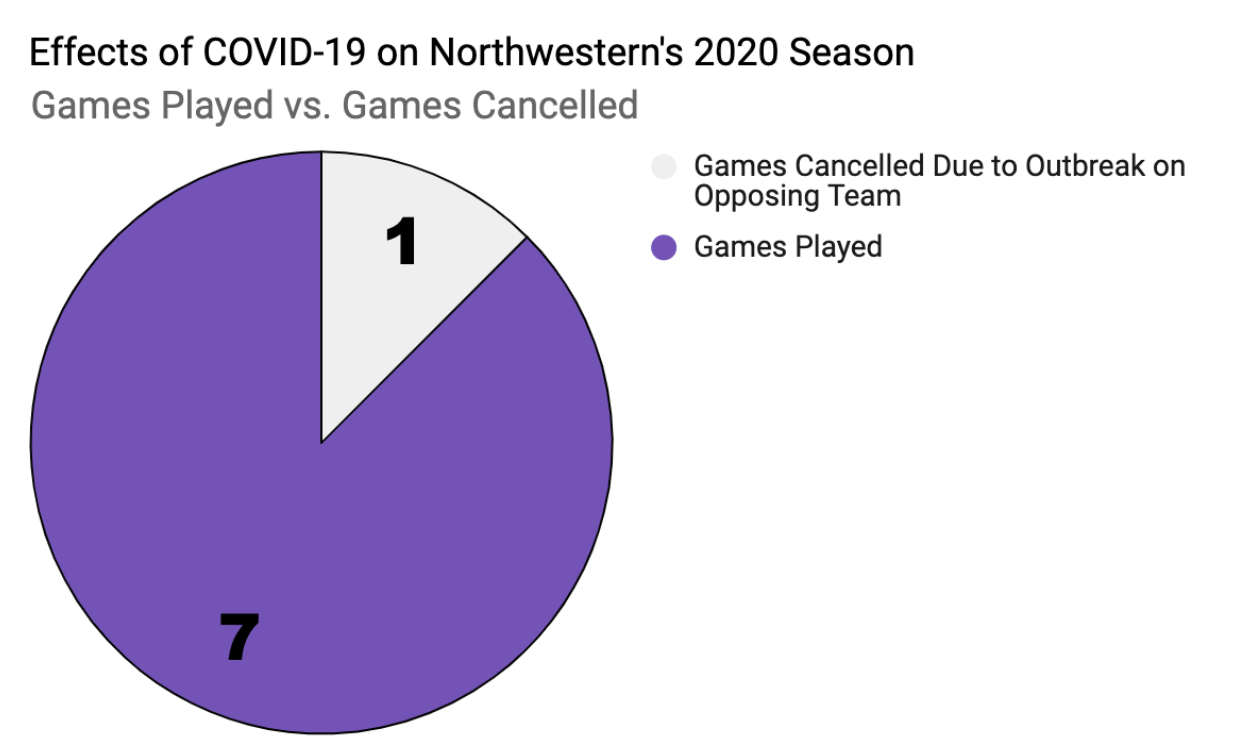
Team or structure?
Unlike other Big Ten institutions, Northwestern did not allow freshman and sophomore students back on campus in the fall. This helped them achieve a lower positivity rate in the school’s overall population and limited athletes’ interactions with other students. In addition, Northwestern’s small size compared to other Big Ten schools may have allowed easier contact tracing.
Compared to other schools in the conference, Northwestern’s positivity rate remained low throughout the quarter. The school only reported 508 total positive cases out of over 72,000 tests conducted since mid-August, resulting in an average positivity rate of about 0.7%. For comparison, Ohio State has reported 5,963 positive cases from almost 275,000 tests, resulting in an average positivity rate of 2.2%.

Northwestern’s control over campus-wide outbreaks has helped the football program’s efforts to minimize the spread of the virus within their team. Yet the players have not risked anything, refusing to take any chances. The Wildcats continued to emphasize their commitment to team values, limiting social gatherings even among teammates in case someone had a positive case that had not yet been detected. Players committed to staying away from friends and family and sacrificed returning home on weekends or over breaks to lower the team’s risk of exposure.
“FaceTime works, as well, if you want to talk to people,” senior defensive end Earnest Brown said.
Team leadership knew that buy-in from every member was crucial, as even one mistake could put the entire team at risk. Commitment from all levels of the team ensures success, as the program continues to register negative tests daily while the season finally draws to a close.
“Our guys have been incredibly disciplined with their social decisions, and I’m very proud of them for that,” Fitzgerald said.
Northwestern players knew the conference championship was always the goal, and as the big game finally approaches, success over COVID-19 should give the team confidence in overcoming their next opponent. After all, a culture that can beat a global pandemic certainly has a chance to beat Ohio State.
